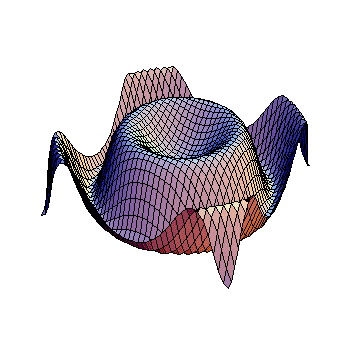How can logarithms be used to solve exponential equations?
1 Answer
The obvious use is for equations of different bases, such as for example
You can never get 3 and 2 on the same base without the use of logarithms, so to solve this equation for
And from then on, just solve the equation using algebra, however, what most people forget is that even when you have the same base you're still using logarithms, it's just a step we often skip. For example:
We're used to going from the first one to the third skipping the second so we forget it's there.
Logs also have more uses than just exponential equations but those were mostly important back in the days before the calculator, in which it made calculating stuff much, much, simpler.
*I've used the natural log because it's convenient in Calculus and it has less characters to type here, but any base could be used.

